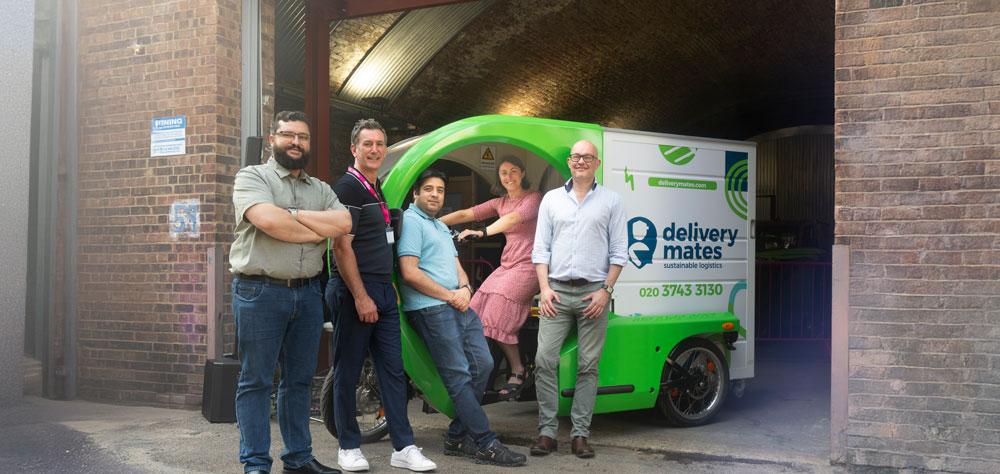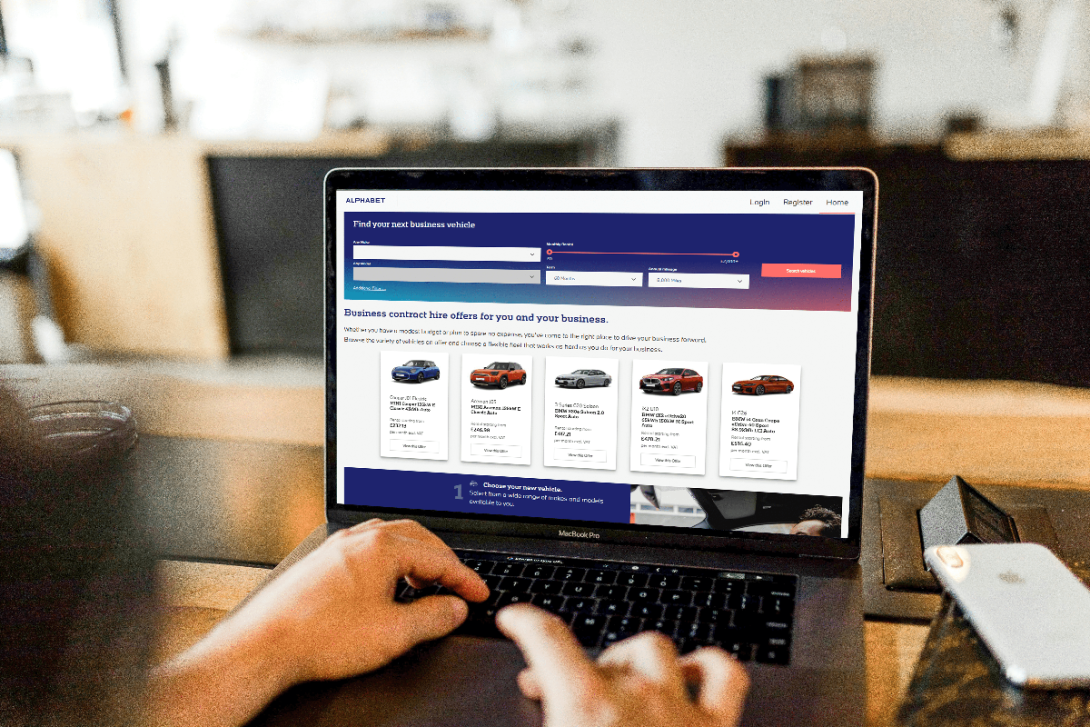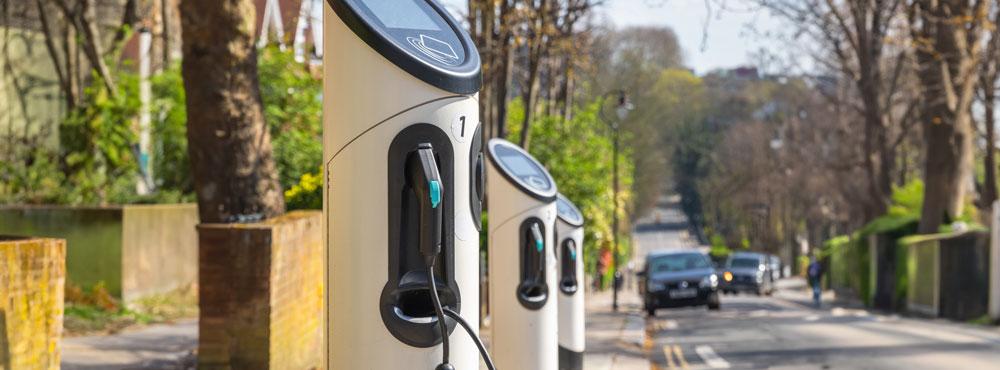Delivery and logistics are major contributors to business carbon emissions, making them a key focus for SMEs striving for net zero. Gideon Taylor from Better Bankside shares practical strategies for decarbonising freight activities to support sustainability goals
Delivery and logistics account for a major share of business carbon emissions, and with SMEs accounting for over 90 per cent of the business population, and approximately 40 per cent of the UK’s non-domestic emissions, changes in this area can make a significant contribution towards our net zero target – as well as saving SMEs money.
Looking at ways in which SME freight can be decarbonised was one of four streams in our Southwark Climate Collective (SCC) programme, which, since 2023, has equipped more than 140 Southwark SMEs with the tools, skills and technical support to cut their emissions. The aim of the initiative, which is led by Business Improvement District Better Bankside and other partners (including Southwark Council,) was to close the “Intention Gap” – the space between SMEs’ willingness to act on sustainability – and their capacity to do so. It was also to find a proven, scalable model of support for SMEs that can be rolled out widely.
The desire to be sustainable
Many SMEs want to become more sustainable in their operations but face significant challenges to do so. According to the UN-backed SME Climate Hub, SMEs need urgent support to decarbonise their business operations but are hampered by a lack of skills and knowledge (63 per cent,) funding (48 per cent) and time (40 per cent). Where businesses are heavily reliant on freight deliveries, there will always be an economic driver to find more efficient ways of doing business. And often targeting a reduction of emissions (scope 3 ) aligns with being more efficient and can be a powerful message for change throughout the organisation.
SCC freight decarbonisation case study
One of the most transformative examples of what can be achieved in the freight space came from Wanstor, a tech firm with a logistics-heavy footprint, who managed to reduce its freight emissions by 80 per cent. Like many SMEs, Wanstor was facing pressure to operate more sustainably, but lacked a clear strategy around how to get there. Through the SCC, Wanstor underwent a comprehensive freight audit that tracked all deliveries and servicing trips.
By restructuring delivery schedules, consolidating shipments, and working with partners such as DPD to switch to greener fleets, Wanstor achieved a remarkable 46 per cent reduction in delivery and collection frequency. Even more impressively, they slashed their freight-related carbon emissions by 80 per cent. Internal engagement was crucial – while not all staff were initially on board, trialling the new methods proved their value. Sustainability became embedded in the business, earning Wanstor industry recognition as a finalist for the MSP Service Desk of the Year award.
Veronica Pacera, finance supervisor at Wanstor, said of the SCC programme: “You gave us the focus and support we needed to tackle our sustainability challenges. It helped us identify key areas for improvement and where we could streamline our operations,. Without SCC, we wouldn’t have achieved the same level of impact or clarity in our goals.”
Wanstor’s story illustrates one of SCC’s larger goals: to help SMEs realise that sustainability is not just good for the planet – it’s good for business. Whether it’s cutting energy bills or streamlining logistics, these changes can boost efficiency and save money at a time when many businesses are facing serious economic headwinds.
Practical tips for decarbonising deliveries
Central to the freight stream is the auditing of business freight operations – analysing the way SMEs could consolidate deliveries, or make more subtle tweaks such as changing their timing to reduce impact. Engaging staff is also a key component, as is thinking more closely about the partners they worked with – to combine deliveries and make individual trips more efficient.
Here are some other high-impact actions from the programme that SMEs can take to make their delivery operations greener. One of the simplest yet most effective strategies is to consolidate deliveries. By grouping orders and setting fixed delivery days, businesses can reduce the frequency of deliveries, cutting down on emissions and congestion. Equally important is choosing to work with green couriers – logistics partners that operate electric vehicles, cargo bikes, or hybrid fleets.
Another impactful approach is to switch to local suppliers. Sourcing goods from local depots not only reduces long-haul emissions but also supports delivery methods that tend to be lower in environmental impact. Internally, businesses should encourage staff to avoid sending personal deliveries to the workplace, as fewer courier visits help ease traffic and reduce air pollution.
Waste management also plays a role in greener logistics. SMEs can use waste compactors to reduce the volume of waste needing collection, which in turn decreases the number of vehicle trips required. Similarly, retiming deliveries to off-peak hours helps avoid traffic congestion, leading to more efficient fuel use and better air quality.
Technological solutions offer additional advantages. Businesses should invest in route optimisation tools that help plan the most efficient delivery routes, avoiding unnecessary mileage. Another collaborative tactic is to explore shared delivery models, partnering with nearby businesses to pool resources and reduce overlapping logistics.
To ensure long-term success, it’s crucial to engage staff in sustainability efforts, making the operational and environmental benefits clear to build support and commitment. Finally, SMEs should track their progress using dashboards and regular audits to monitor emissions and identify further opportunities for improvement.
SCC’s new UKSPF funding
The Southwark Collective Programme was recently awarded £252,000 in new funding from the UK Shared Prosperity Fund (UKSPF) to allow the programme to continue. This money will allow the programme to continue to build capacity (through bespoke training) within SMEs, as well as providing targeted technical support to assist businesses to implement workable decarbonisation plans. Better Bankside’s overall aim for the project is to find a proven, scalable model of support for SMEs that can be rolled out across London, backing the objectives of the Mayor of London’s growth and net zero strategy.






